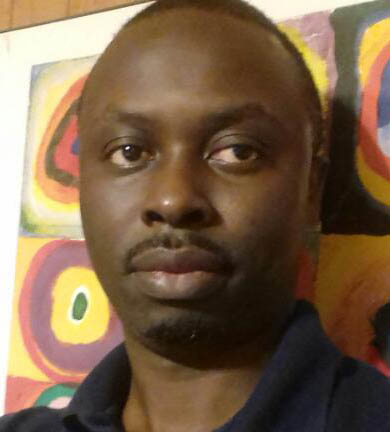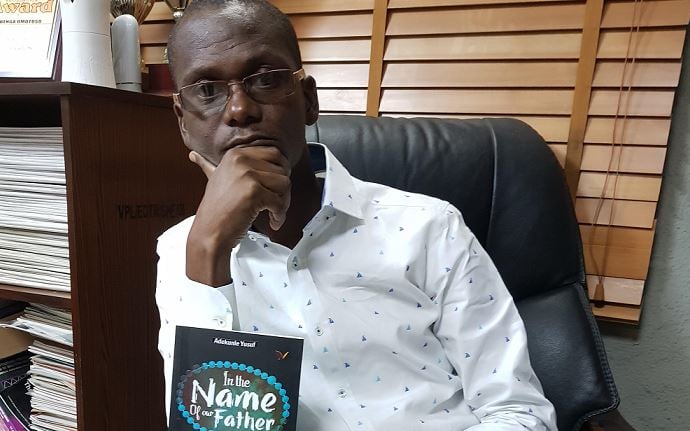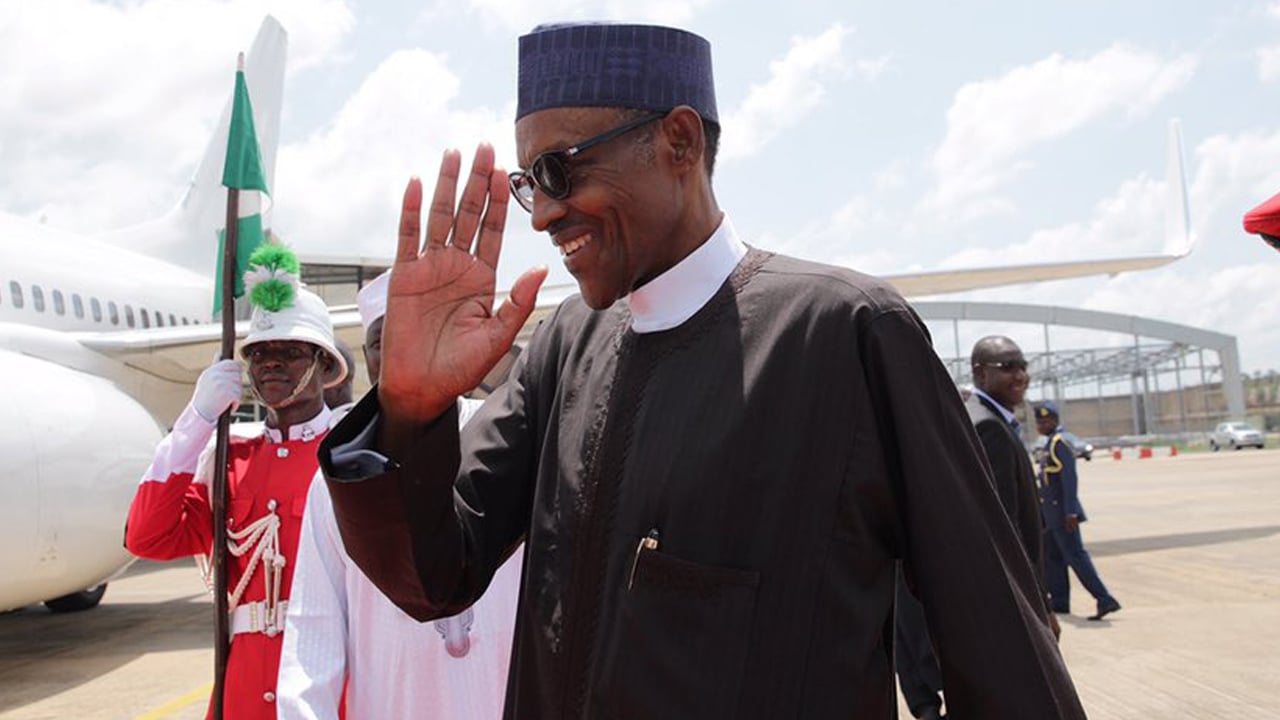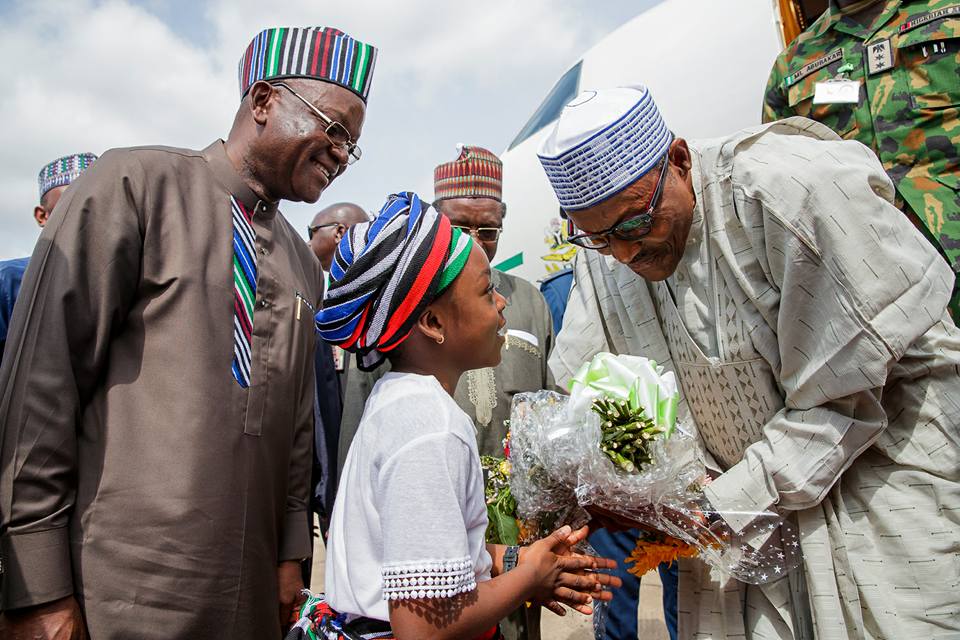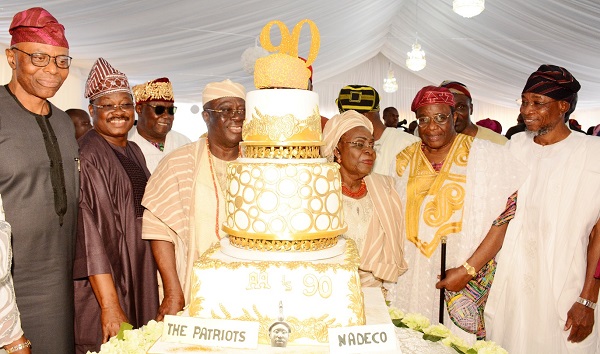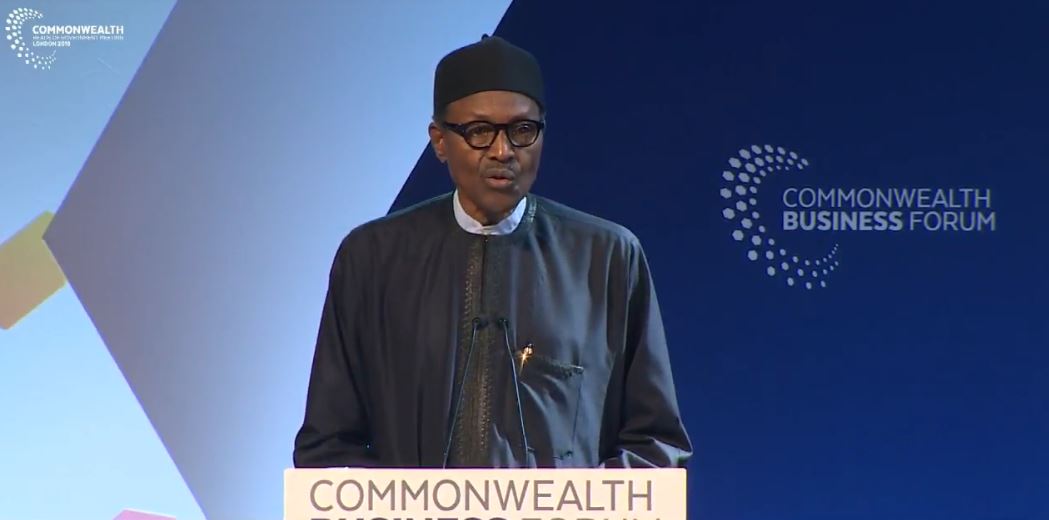The Nation newspaper has many good names written on it for bylines. Olukorede Yishau, an associate editor whose job at the newspaper is to plough through tons of news stories everyday for highest standards of journalism by The Nation reporters has an outstanding name.
A back page columnist for its Niger-Delta edition, whose finely written essays from trivial and somewhat flippant to serious and often sobering investigations attract the attention of bigwigs—with reactions that are sometimes emotional or an attempt at a cover-up—Yishau parades several top-level industry awards.
Amazingly, Yishau, who won one of the most coveted industry awards in 2016 as Columnist of the Year, didn’t start his engaging prose from Tell Magazine or The Source, where he once worked and has his name referenced often as a thoroughbred professional journalist, the bookish journalist started with inspiration he garnered from reading Songs of Solomon, a book of the Bible known for its romantic subject matter.
In his early days, after reading the Bible Yishau will go anywhere with his pen and paper in his pocket. Instant miracle of ideas flowed ceaselessly in his head and many poems and fiction works were born through the immersion of his mind into the Songs of Solomon.
Advertisement
I’ve spent quality time with him these past years to know his travails and triumphs. I met Yishau on the street a little over 20 years ago with a body inside a slim frame carrying a prodigious talent. That talent has contributed to the growth of good journalism in Nigeria in the last 18 years. Now, Yishau, a front row journalist who turns 40 on Sunday is making a foray into the world of authors. His debut novel, In The Name of Our Father, has already reached many hands in Nigeria and abroad. It was released early this month.
In The Name of Our Father has unique features that are not common to many fiction books. The writer was a key participant in the history of an era that became a book. The story set under the last military regime is superlatively weaved in simple and easy to read prose. The suspense is superb. The plot is so gripping that an average reader cannot but keep turning the pages.
In this book, Yishau proved his passion for use of English, showing deft for storytelling. He also comes across as one imbued with the presence of mind to dazzle and haunt us at the same time. Significantly too, he profoundly stitched together a compelling tale of greed, power, duty and a country eager to put behind it a dictator on the loose.
Advertisement
On the pages of this novel, you will see the right quantity of swagger to the prose, which leads to a situation that forces you to keep turning the page until the very last.
I’m not a bit surprised at how Yishau manipulated words to keep his readers in the mood throughout the more than 200 pages of the book. In Journalism school, where our paths first crossed, Yishau had an appellation of ‘intelligentsia’, because he was a highbrow student with creative prowess.
So before I roll you over into the content of the book, let’s make a detour to people who read the first copies of the book.
The book is described by renowned novelist, Toni Kan, in three phrases; “two men, one dictator, and a country in turmoil. It is the story of two men intent on preserving their lives but it is on a larger scale the story of a country fighting to throw off the shackles of a power mad dictator.”
Advertisement
Hon. Wale Oshun, author of ‘Clapping with one Hand’, politician and economist who is the Chairman of the Afenifere Renewal Group (ARG) wrote: “I have just finished reading through – the impunity called Nigeria, the perversion called religion but overall the complicity of all of us in the tragedy that is now our country. Let me say upfront that no Nigerian is free of blame. It is a work of fiction but you have only fictionalised our collective experiences. But by the way, you seemed to be speaking from firsthand knowledge of the Ikoyi Prison jail break of that era and I was wondering if you were writing regarding the coup as a writer or as experienced.”
Joe Agbro Jr, a reporter calls the book an alternate history of a military dictator in Nigeria. “The title of Olukorede Yishua’s novel, ‘In The Name Of Our Father’ teases of spirituality,” he wrote. “Yes, it does, but it is also the story of Justus Omoeko, a journalist and aspiring novelist. Set in Nigeria of the last decade of the millennium, Yishua dissects the mushrooming of churches by smart Alecs as a way out of economic hardship.
“The author takes the readers through the shenanigans of the fake miracle pastor who easily turns a mean or meek mien depending on the need. With several twists and turns in his coloured life, I eagerly turned the pages to find out what trick the prophet had next. However, just when the reader settles to think the book is an expose on the corrupt life of prophet Alani, it segues into another phase.
“Gripping, with catchy expressions and witty plots, the novel was ‘un-put-down-able.’ I yearned to know what prophet Alani was up to and irresistibly turned every page till I got to the end. Putting it succinctly, ‘In The Name Of Our Father’ is a faction that presents an alternate history of Nigerian life during the military era of the 1990s.”
Advertisement
Former Editor of TELL Magazine, Mr Ayodele Akikuotu, who once supervised Yishau’s work at TELL could not hide his excitement about the novel. He commended the work saying he thoroughly enjoyed the novel with his eyes out for another.
In The Name of Our Father, a mirror on Nigeria’s past is the story of a man who seems to have a deal with poverty. Everything he touches never prospers. His condition is worsened by the fact that he cannot even fend for his wife and only child. A series of tragedies forces him to re-examine his life and he decides to take the fast lane. With the help of a friend, he enlists in a secret society and gets power to perform miracles. The church he starts after securing the power soon becomes a haven for miracle seekers. The money soon starts to roll in and he feels on top of the world. He soon hits the jackpot when the Head of the military government at the time, in his desperation to transmute into life president, enlists his service and money starts pouring in like water from a fountain.
Advertisement
However, his personal life is a disaster. His ex-prostitute wife finds it difficult to bear the fruit of the womb. Is this a side effect of the juju bringing in the crowd? He eventually agrees with his wife that they should adopt a baby but present it in such a way that people will believe she actually is delivered of one. She carries fake pregnancy for months and later disappears abroad with the farce that she has travelled to have her baby there.
Interestingly, another drama plays out when a girl in the church claims the pastor has put him in the family way. His excitement knows no bound and it actually gingers him to allow the wife disappears abroad. In the long run, it turns out somebody else’s pregnancy is pinned on him.
Advertisement
Another side to this novel has to do with a journalist who finds out the pastor’s atrocities committed in the name of God, our father, and decides to write a novel out of it. When it is time for the novel to be published, he starts receiving anonymous threat letters. His fiancé breaks up with him on the account of pictures he has no idea of. He is soon implicated in a coup and finds himself behind bars and is only released when the military dictator dies mysteriously.
The way Yishau weaves these two parts of ‘In The Name of Our Father’ adds to the suspense and compels one to flip the pages trying to connect the two worlds but he does it so well that only on the last page will a reader be able to connect everything and makes clear sense out of the events of the previous pages.
Advertisement
In this novel, you will see people you know, such as General Odogbolu Iya, General Saidu Ilorin, Idris Gilolo, General Sani Idoti and Comrade Uche Koba. I will not break it down for you. You will understand better when you read this amazing work of art.
For those who may want to see this novel, which a number of people have described as masterpiece and which respected novelist and poet Toni Kan describes as a ‘mesmerising tale’, as an attack on Christianity, it is actually an attack on those messing up Christendom. We have many of them around. Christ is the reason for Christendom but these guys have taken Christ out of it and have added Olugbohun and Aworo. Every other day, we hear tales of supposed churches where human parts are buried and life cows underneath altars. This class of ‘men of God’, who the Bible actually told us of are the ones the novel attacks, not the true followers of the word of God.
The moral of this tale is that evil never triumphs over good. You can run but never hide. It is instructive that this novel is out at this time when we still have so many people in government are deceitful like Prophet T.C. Jeremiah, one of the two men who were intent on protecting themselves in this coming of age tale. Equally is instructive is that free speech was under attack in this novel. We all see how free speech has now become hate speech. Men who are fed and clothed with public funds now see themselves as demi gods and do not want to be criticised. These men who are supposed to protect free speech are now the ones gaging it.
It is saddening that the police in this novel set and written years ago share a lot in common with the ones we still see on our streets who demand bribe unashamedly. It is sad that the State Security Service of decades ago is not much better now. It breaks my heart that the more things change the more they remain the same.
Let me warn you about this novel: Please do not attempt to read it when you have something cooking in the kitchen or something else should be engaging your attention because chances are that you will get addicted and forget what is on the fire. No thanks to its opening line which brings to mind the legendary Chinua Achebe’s Things Fall Apart.
Tell me who will not be arrested by these lines: “The center began not to hold for me when I decided to mount another pedestal. Until then, journalism was what I chose to pursue; but after a while something else began to pursue me. It was beautiful and marvelous in my sight, but without form and void. I tried to run away from it. Try as I did it would not leave me. In my dreams at night and during the day, the muse kept drawing me to it. I heard the muse clearly telling me to become a devotee and at the same time nudging me on the shoulder to take the quills. With time, I began to admire the muse and got enraptured. Then one day, I decided to give it form by putting pen to paper and by the time I was about to bask in my new found joy, hell came down hard on me. My head was topsy-turvy.”
On a last note, I wish Yishau God’s speed as he concludes work on his second novel, which he told me, is tentatively titled ‘Diaries from the Underground’. From the snippets he gave me, I have a feeling it will be better than his first and startlingly vivid.
In our days, when prophesy abounds about the death of print journalism, Yishau is already thinking out of the newsroom. He’s creating a job for himself in the face of uncertainty. Much more, he’s keeping his name in the minds of millions beyond the pages of The Nation and shores of Nigeria. Honestly, I think book writing is a virtue every journalist should add to his/ her calling. I may be wrong, but Sam Omatseye, Segun Adeniyi, Kayode Soyinka, and many others are journalists and authors.
Views expressed by contributors are strictly personal and not of TheCable.
